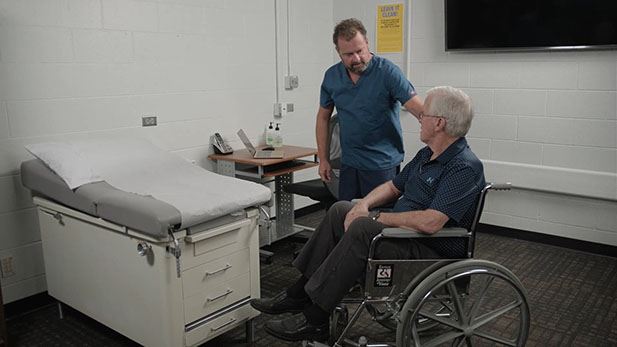

Library > Medical Assisting > MA Professional Skills > Ethics
Try Simtics for free
Start my free trialMedical Ethics and Legal Considerations NEW

Ethical standards play an important role in the responsibilities of a medical assistant while performing patient care. As a vital member of the healthcare team, a medical assistant must understand and adhere to the ethics and principles set forth in medical assisting. This module provides knowledge in understanding the various ethical issues that a medical assistant may encounter in the workplace and how to apply them in the medical office.
You’ll learn
- the code of ethics
- patient rights
- the various laws that affect a medical office
- the difference between morals, ethics, and laws
- much more (see Content Details for more specific information)
- Determine actions that are within their scope of practice to actively participate in delivery of a quality healthcare experience.
- Differentiate between legal, ethical, and moral issues affecting healthcare.
- Recognize the impact personal morals have on the delivery of ethical healthcare.
- Demonstrate keeping patient information private and confidential.
- Honor dignity of patients and co-workers through treatment of the person as a whole.
- Demonstrate acceptance of differences in patients and co-workers through just treatment of all.
- Advocate for growth in professional skills by providing health and well-being services to the community.
- Apply ethical principles to decision-making related to medical assisting actions.
The SIMTICS modules are all easy to use and web-based. This means they are available at any time as long as the learner has an internet connection. No special hardware or other equipment is required, other than a computer mouse for use in the simulations. Each of the SIMTICS modules covers one specific procedure or topic in detail. Each module contains:
- an online simulation (available in Learn and Test modes)
- descriptive text, which explains exactly how to perform that particular procedure including key terms and hyperlinks to references
- 2D images and a 3D model of applied anatomy for that particular topic
- a step by step video demonstration by an expert
- a quiz
- a personal logbook that keeps track of all the modules the learner has studied and how long
For more details on features and how your students can benefit from our unique system, click here.





